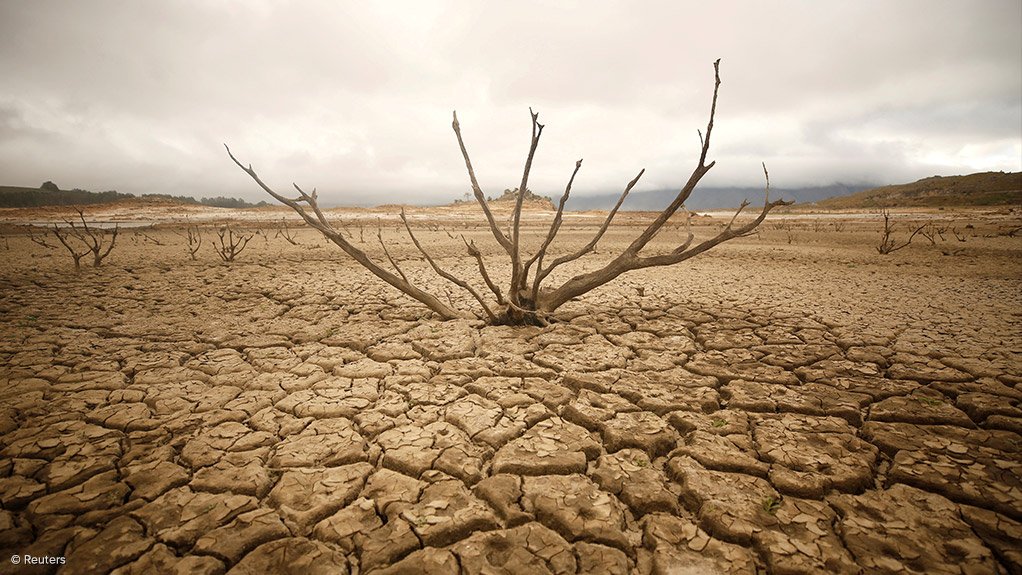South African farmers face tough road to recovery


ROAD TO RECOVERY Drought stricken regions in South Africa need three years of significant rainfall to recover
Photo by Reuters
Local orchards and vineyards could take between five and seven years to fully recover from the recent drought, provided there is average or above- average rainfall for three consecutive years, says agriculture industry association Agri SA natural resources head Janse Rabie.
“Because of the drought, the farmers had to remove orchards or vineyards to save what they could using the limited resources that were available.”
Trees bearing soft fruit, such as apples, pears and oranges, as well as table and wine grapes, take three to five years to reach maturity and, therefore, be of fruit- bearing age, he adds.
Rabie also mentions that the rebuilding of livestock herds relies on the condition of the fields in which they graze, which could take a number of years to reach the carrying capacity to support large herds.
However, this recovery is only possible in a best-case scenario where there is significant rainfall over the next three years, he says, adding that, “for the Western Cape, the message from government is that these prolonged dry spells are what is going to be referred to as the new normal and obviously the agriculture sector needs to prepare for that”, he cautions.
CSA
To survive extended dry periods and lower rainfall, South African farmers are turning towards climate- smart agriculture (CSA).
The Food and Agricultural Organisation of the United Nations defines CSA as “agriculture that sustainably increases productivity, enhances resilience, reduces or removes greenhouse-gas emissions where possible, and enhances achievement of national food security and development goals”.
A major aspect of CSA is precision farming – “having a very clear understanding of the conditions of your particular farm”, says Rabie. Technological resources, such as satellite imagery, surveys and monitoring probes, can assist farmers with not only precision farming but also their main challenges of water use, efficiencies and crop yields.
Precision farming enables farmers to implement new irrigation systems that provide water for crops at the right time and in the right amount, which can have a major, positive impact on water use, Rabie explains.
“The requirement to ensure that water use is done properly requires metering and measurement – which have only recently been given the required attention,” Rabie highlights. The drought has highlighted that farmers need to manage their water and to do so, they need to measure, meter and plan accordingly, he notes.
Farmers can also implement conservation farming techniques, which entails that there is little or no tilling of the soil, with soil cover throughout the year with either live plants or humus, and then crop rotation. “Where conservation farming has been applied successfully, indications are that farmers save enormously on water consumption and effective water use,” Rabie highlights.
Farmers can also use simple farm management techniques, such as selecting the right crops or farming techniques for the region in which they are farming.
“The main issue is efficiency, and that is the best way to deal with the new normal. This means farmers getting the right yields, planting the right crops and using water most beneficially,” Rabie maintains.
Although there is an emphasis on new technology, which can assist with energy requirements, as it can assist with power generation should there be a disruption, he notes adding that technology is expensive and not all farmers can afford it.
However, Rabie says the future of farming is “rosy”, as local farmers “are some of the least subsidised in the world and, as a result, are extremely efficient”. South Africa has a growing population which will need to be fed; therefore, the agriculture industry needs to be expanded and expanding the historically disadvantaged farming sector is essential, by focusing on the emerging small farming sector, he concludes.
Comments
Announcements
What's On
Subscribe to improve your user experience...
Option 1 (equivalent of R125 a month):
Receive a weekly copy of Creamer Media's Engineering News & Mining Weekly magazine
(print copy for those in South Africa and e-magazine for those outside of South Africa)
Receive daily email newsletters
Access to full search results
Access archive of magazine back copies
Access to Projects in Progress
Access to ONE Research Report of your choice in PDF format
Option 2 (equivalent of R375 a month):
All benefits from Option 1
PLUS
Access to Creamer Media's Research Channel Africa for ALL Research Reports, in PDF format, on various industrial and mining sectors
including Electricity; Water; Energy Transition; Hydrogen; Roads, Rail and Ports; Coal; Gold; Platinum; Battery Metals; etc.
Already a subscriber?
Forgotten your password?
Receive weekly copy of Creamer Media's Engineering News & Mining Weekly magazine (print copy for those in South Africa and e-magazine for those outside of South Africa)
➕
Recieve daily email newsletters
➕
Access to full search results
➕
Access archive of magazine back copies
➕
Access to Projects in Progress
➕
Access to ONE Research Report of your choice in PDF format
RESEARCH CHANNEL AFRICA
R4500 (equivalent of R375 a month)
SUBSCRIBEAll benefits from Option 1
➕
Access to Creamer Media's Research Channel Africa for ALL Research Reports on various industrial and mining sectors, in PDF format, including on:
Electricity
➕
Water
➕
Energy Transition
➕
Hydrogen
➕
Roads, Rail and Ports
➕
Coal
➕
Gold
➕
Platinum
➕
Battery Metals
➕
etc.
Receive all benefits from Option 1 or Option 2 delivered to numerous people at your company
➕
Multiple User names and Passwords for simultaneous log-ins
➕
Intranet integration access to all in your organisation



















